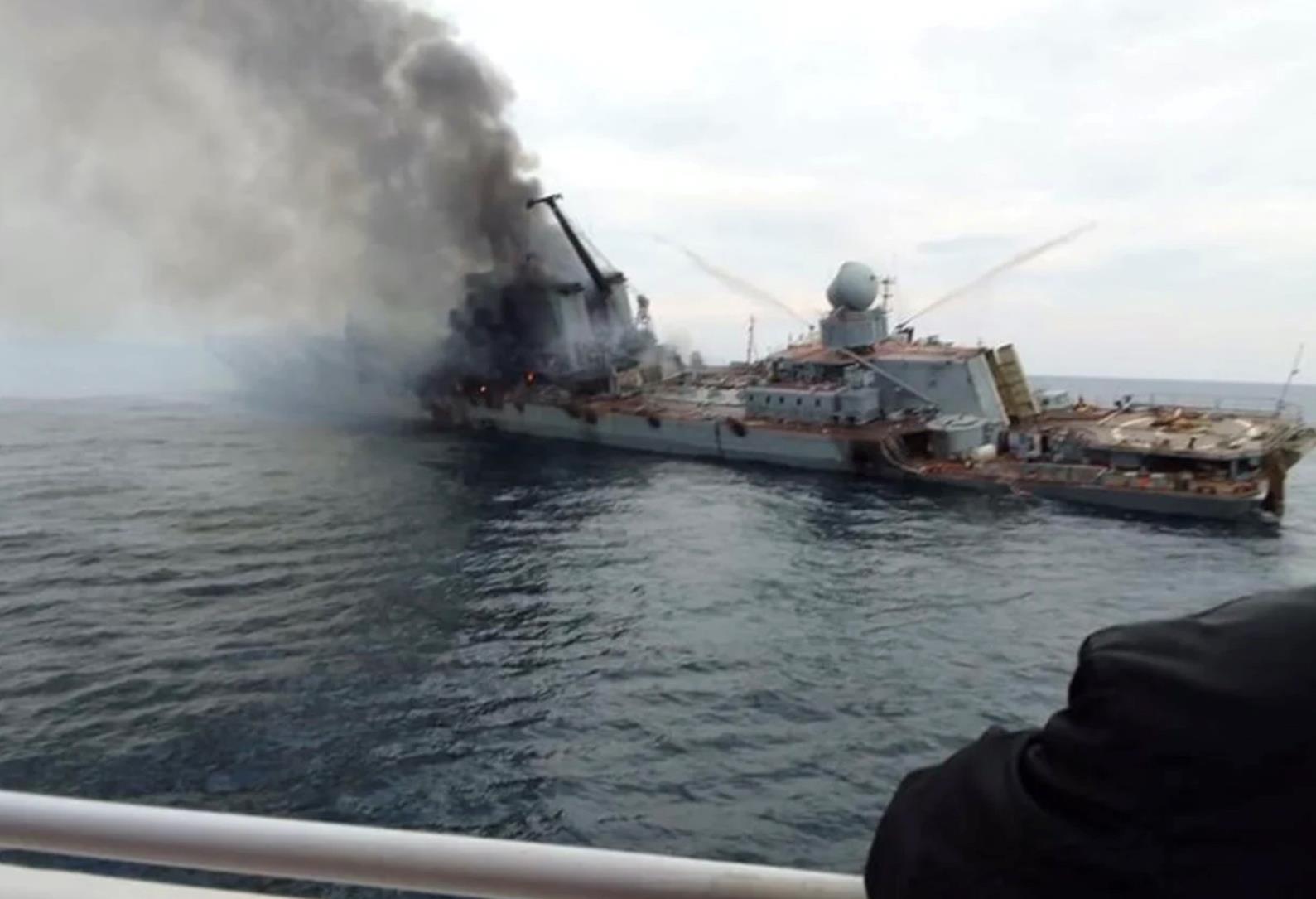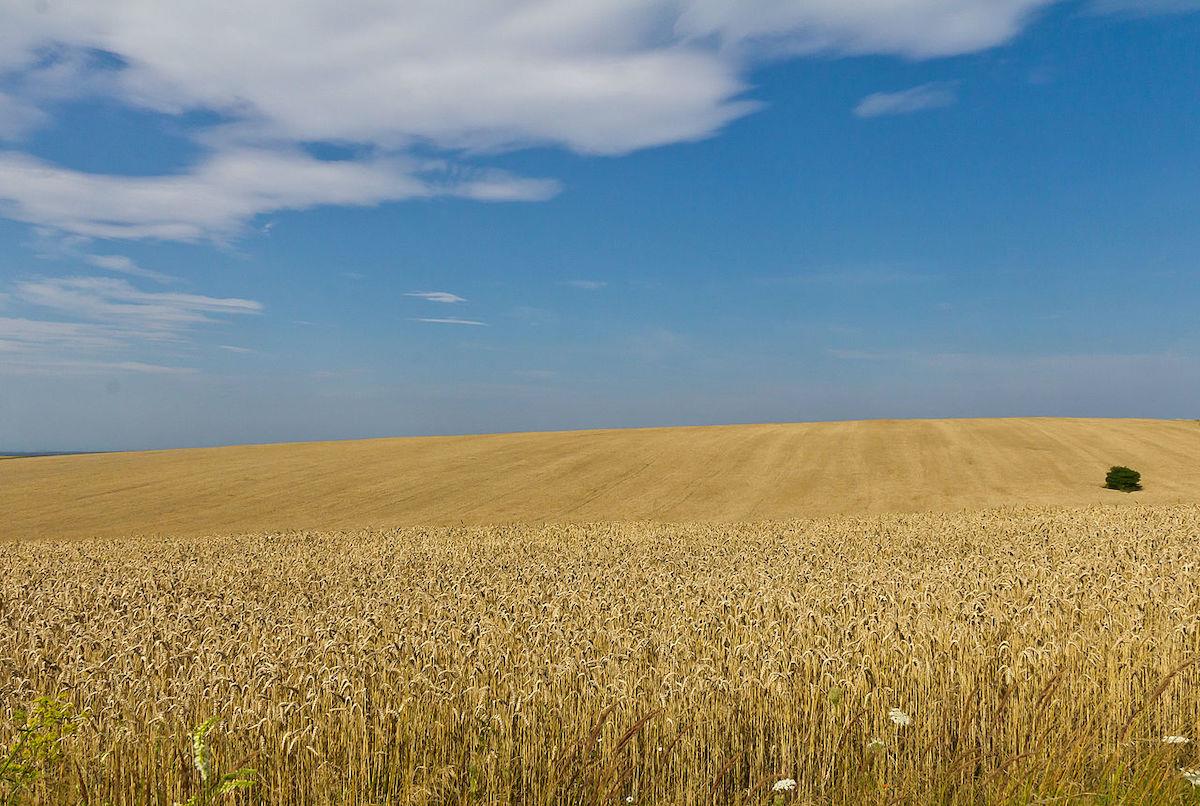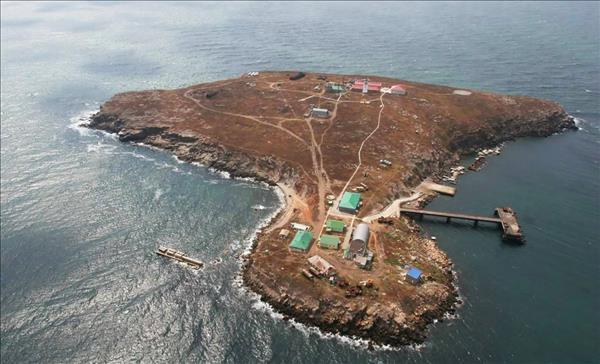
Snake Island's Recapture A Big Bite Back At Russia
On February 24, the first day of the invasion of Ukraine, Russian troops occupied Snake Island, a small but strategically important outpost in the Black Sea about 70 nautical miles south of Odessa.
The 13 Ukrainian troops stationed there were reported to have“twice bravely repulsed the attacks of the Russian occupiers” but were unable to continue fighting because they ran out of ammunition.
Pictures of Ukrainian defenders defiantly giving a Russian warship the finger and audio of them telling it to“go fuck yourself” went viral. The defenders were believed to have all been killed and were posthumously honored by the Ukrainian president Volodymyr Zelensky – but have subsequently been reported to have survived .
So when it was reported on June 30 that Ukraine had retaken Snake Island , it was an enormous and much-needed morale boost. And, as the war on land drags on, this success at sea has strategic implications far beyond the Black Sea that will resonate in the months, or even years, to come.
By taking Snake Island so early in the invasion, Russia secured a crucial piece of the puzzle that enabled Moscow to exercise control over the northwestern Black Sea. For Moscow, this was of operational and strategic importance for three reasons. It meant that the Russian Navy could contribute to the bombardment of Ukraine with cruise missiles.
Meanwhile, it gave the invaders the ability to threaten Odessa with an amphibious assault and enabled them to deny access to and from Ukrainian ports – in other words, to blockade Ukraine.
While most commentators have focused on the war on land, Ukraine has been trying hard to undermine Russia's naval dominance. The first major victory for Kiev was sinking the cruiser Moskva on April 14.
In addition to the prestige of sinking the flagship of the Black Sea fleet, this demonstrated that the Russian navy could not operate safely in the vicinity of Ukraine's coast due to the permanent threat that anti-ship missiles represented – particularly the Ukrainian-developed Neptune and western-supplied Harpoon missiles.

Russia's Moskva warship lists after a missile attack in April 2022. Image: Twitter / CBS News / OSINT Technical / Screengrab
The Moskva was an important piece of the Russian long-range theater air defense system. As a result of its loss, Snake Island's strategic importance increased as a base for electronic warfare and air defense systems, and Ukraine had attempted to regain control over the island several times.
But now the Ukrainian flag is flying again over Snake Island – although Ukraine is not expected to station troops in the short term. What matters most, beyond the symbol, is not a Ukrainian presence on the rock but the fact that Russian forces cannot benefit from its strategic position anymore.
From the military to the diplomatic arenaRussia's loss of control of the northwestern Black Sea had already been flagged by British intelligence on June 21. But until Ukraine reoccupied Snake Island, Russia was still hoping to maintain its ability to blockade Ukraine and was hastily laying more mines .
Blockading Ukraine had become a powerful blackmailing tool for Moscow, which has tried to weaponize food and to put the blame on Western sanctions in a bid to rally the Global South against the West.
It is striking that Russia's sudden declaration that it is willing to“allow” for the free passage of grain from Ukrainian ports coincides with its now proven inability to fully control the approaches, or deny access, to Odessa (although the Russian navy still poses a substantial threat in the area).
Further to this strategic setback, Russia will now try to keep the upper hand in the diplomatic arena by blaming Ukraine and the West for the global food crisis and shifting responsibility for the need to demine the corridor.
The ability of the West to facilitate the establishment of a safe corridor will be crucial, not only in“alleviating the global food crisis” but also in exposing Moscow's diplomatic game and underlining that – as NATO stressed in its Madrid summit declaration – the food crisis is entirely Russia's doing.
This is particularly important in regard to the Global South, whose criticism of Putin's war has been minimal so far.
A successful operation to restore the free flow of grain from Ukraine (whether via the Turkish Straits or using alternative routes ) will further isolate Russia on the world stage. But any setback or failure will play in favor of Moscow's narrative that it's the West's fault.

The wheat fields in Ukraine. Russia's invasion has crippled the country's vital exports. Photo: WikiCommons
Long wars are rarely won only in light of military successes – economic dominance and political influence play a crucial role. Whereas the West, as a coalition of seafaring nations dominates the global maritime order, it has not yet managed to isolate Russia on the diplomatic stage.
This is how the fate of a small rock in the northwestern Black Sea has not only shaken the balance of power between Ukraine and Russia in the Black Sea but also the diplomatic status quo.
The political confrontation between Russia and the West on the world stage has only just begun, and the victory over Snake Island might well have initiated a tide whose long-term effects are still to be fully comprehended.
Basil Germond , Senior Lecturer and Director of Research Training, Faculty of Arts and Social Sciences, Lancaster University
This article is republished from The Conversation under a Creative Commons license. Read the original article .

Legal Disclaimer:
MENAFN provides the
information “as is” without warranty of any kind. We do not accept
any responsibility or liability for the accuracy, content, images,
videos, licenses, completeness, legality, or reliability of the information
contained in this article. If you have any complaints or copyright
issues related to this article, kindly contact the provider above.


















Comments
No comment